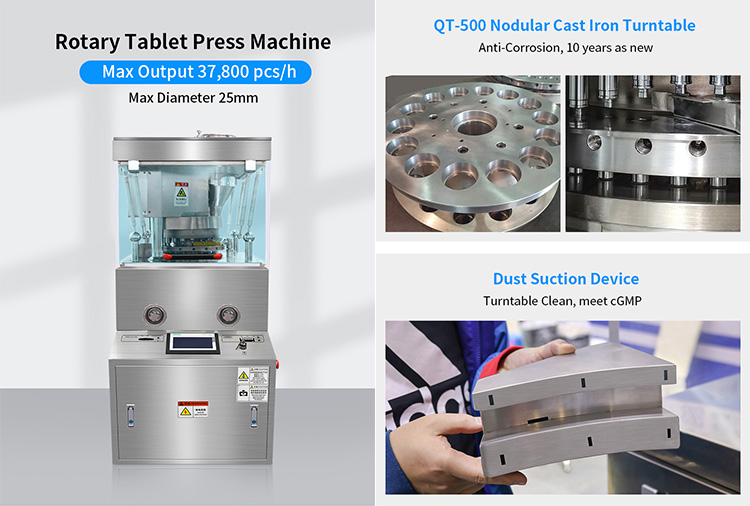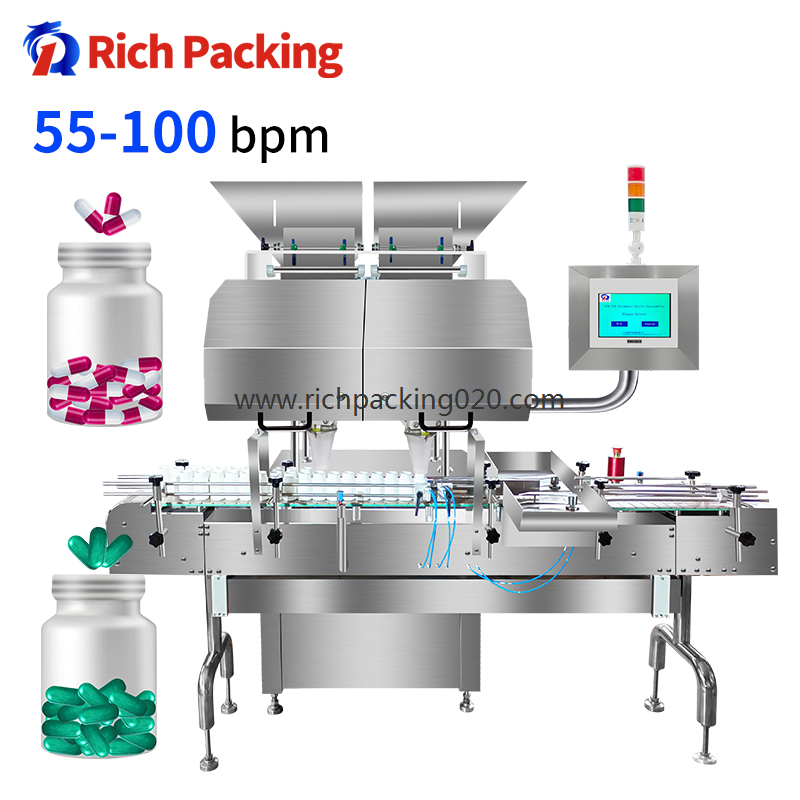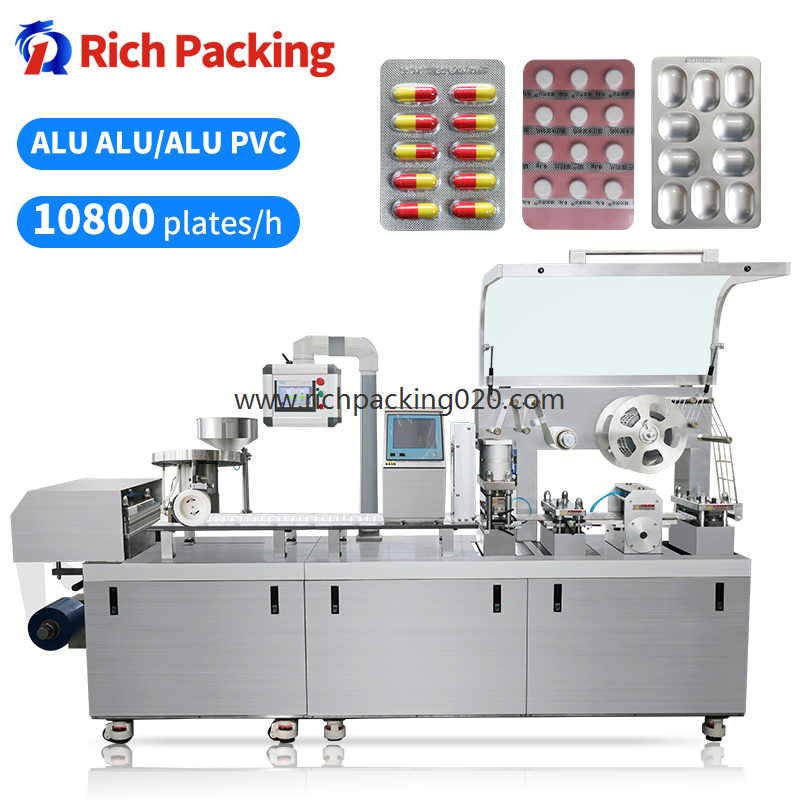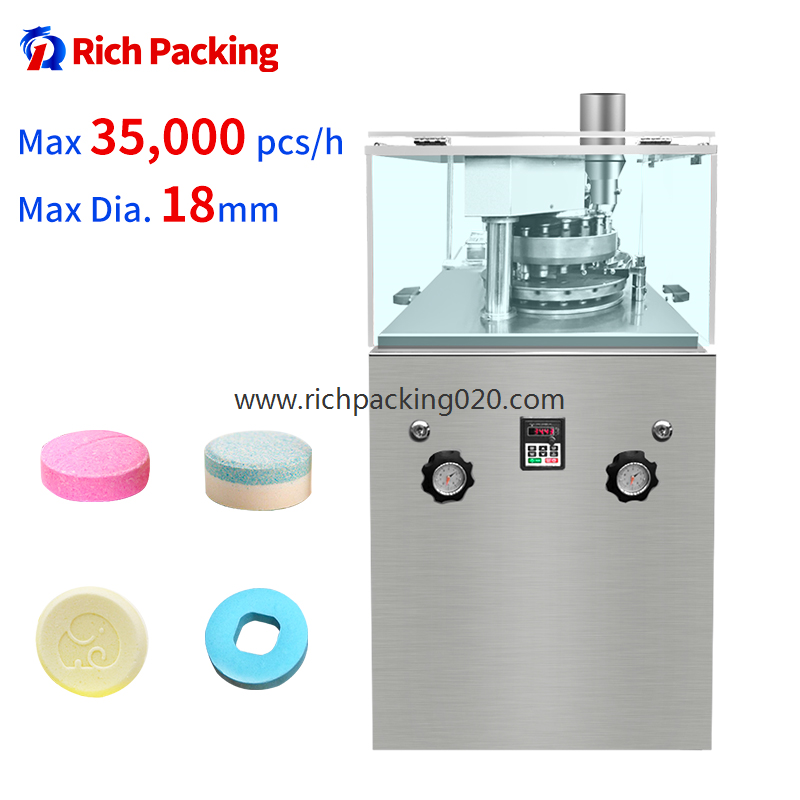HOT PRODUCTS
Details
 Home
> NEWS
> Industry News > Details
Home
> NEWS
> Industry News > Details
Disadvantages of Hydraulic Tablet Press
Disadvantages of Hydraulic Tablet Press
Hydraulic tablet presses have several advantages, such as flexibility in adjusting compression settings and suitability for small-scale production and research. However, they also have some disadvantages and limitations that should be considered:
1. Lower Production Speed: Hydraulic tablet presses are generally slower in terms of production speed compared to rotary tablet presses. This can be a significant drawback for large-scale manufacturing, where high production rates are essential to meet demand.
2. Lower Overall Efficiency: Due to their slower production speed and the need for manual adjustments, hydraulic presses may have lower overall efficiency in terms of tablets produced per unit of time compared to rotary presses.
3. Limited Automation:Hydraulic presses often require more manual intervention and adjustments, making them less suitable for fully automated production lines. This can increase labor costs and the risk of human error.
4. Tooling Changes: While hydraulic presses offer flexibility in adjusting compression settings, they may require more time and effort for tooling changes compared to rotary presses. This can result in longer changeover times when switching between different tablet sizes or formulations.
5. Maintenance:Hydraulic presses involve more complex hydraulic systems that require regular maintenance to ensure proper functioning. Maintenance costs and downtime can be higher compared to simpler tablet press machines.
6.Limited Adaptability for Large Batches: Hydraulic presses are better suited for small to medium batch sizes. Producing very large quantities of tablets with a hydraulic press can be less efficient and may require multiple presses running in parallel.







